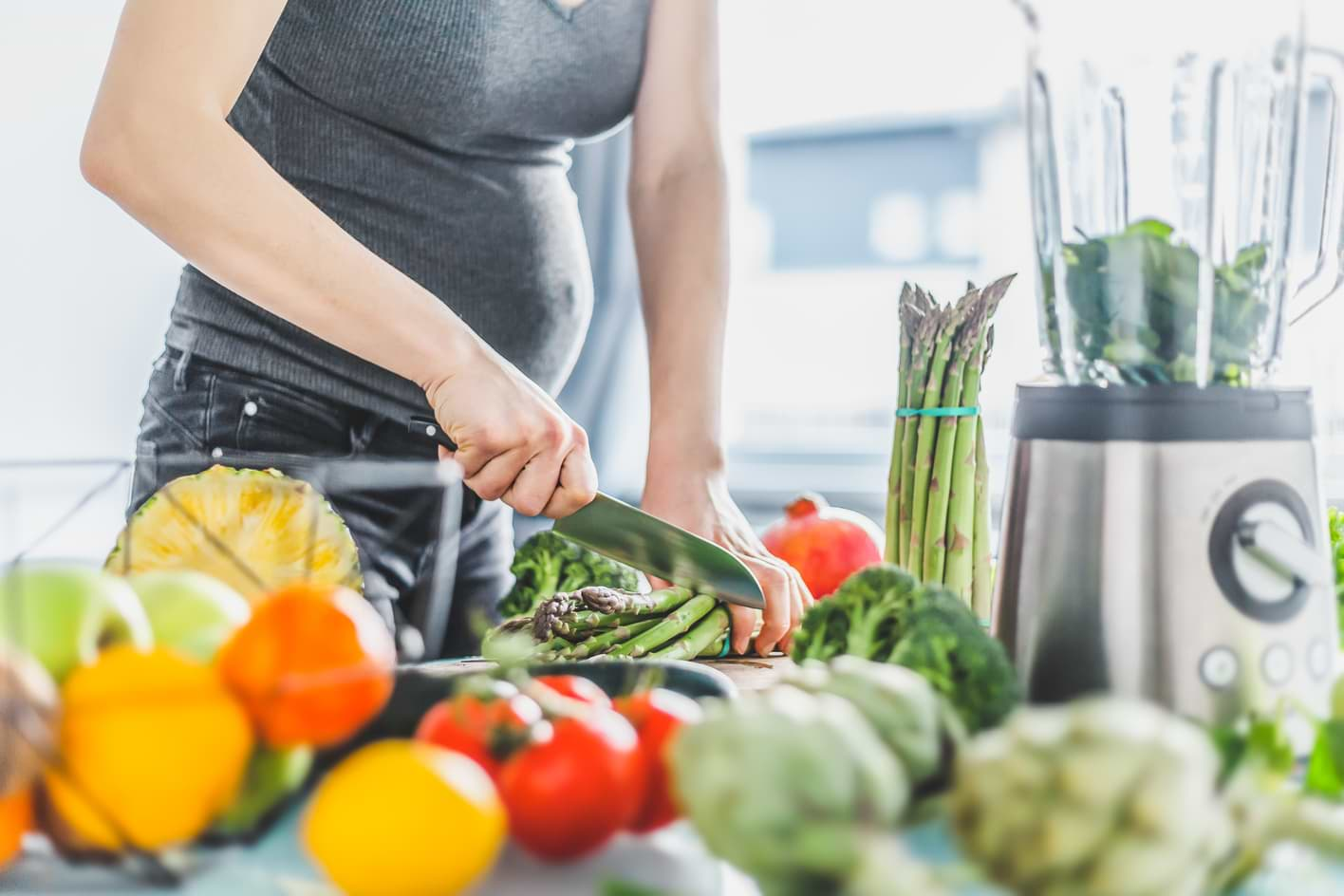Welcome to the first trimester of your pregnancy.
Filled with exhaustion, nausea, and aversion to food, you are finding it challenging to eat properly for two people. On top of that, morning sickness and heartburn may cause you to not pay enough attention to eating well at this exciting time.
What is happening in your body?
It is going through a lot of changes. It is trying to get prepared to carry your baby for the next 9 months. Most importantly, it is experiencing a surge of pregnancy hormones. All of that can lead to frustrating nausea and fatigue. For example, progesterone slows down muscle movement in your body which can cause digestive discomfort, including constipation and reflux.
Early in pregnancy, it is normal for many expecting mothers to find that they no longer have a taste for many of the foods they once loved like vegetables or meats. If you are one of these mothers, don’t beat yourself up at all. Usually, your appetite returns stronger once you’re done with the first trimester. So, for now, instead of worrying, focus on healthy foods so that you and your baby won’t miss out on nutritional basics.
Do you need more calories in the first trimester?
Obviously, you’re eating for two! Just like you, your baby needs the energy to grow. But during the first trimester, they are still very small. So, although your body is busy at work, you do not need any extra calories until the second trimester. Experts recommend that you consume about 2000 calories daily. But, keep in mind that your doctor may recommend more calories depending on your conditions such as your level of daily activity.
What nutrients are important for you and your baby?
What you eat is your fuel, and it gets crucial when there is a tiny human growing inside of you. This baby eats what you eat, and the baby needs the nutrients to support the development of its tiny organs. You’ll need a variety of essential nutrients over the next 36 weeks, but in the first trimester, focus specifically on the following:
- Folic acid. This micronutrient should be on top of your list not only in the first trimester but also throughout your pregnancy. This is because folic acid plays a key role in preventing neural tube defects in the developing baby. To get the recommended 600 micrograms per day, eat fruits such as oranges and strawberries, green leafy vegetables, breakfast cereals, and nuts, and don’t forget to pop a daily prenatal vitamin.
- Calcium. Is essential for your baby to develop their teeth and bones. Since they get their calcium from their own stores, lack of enough calcium in your diet can put you at risk of osteoporosis later on. Although, you can get the recommended 1,000 milligrams a day through a balanced diet including dairy products and dark leafy greens, if you feel that you might not have enough taste for calcium-rich foods, consult your doctor on a supplement.
- Iron. Your body needs more blood to keep up with the changes in your body and your growing baby. That’s why iron should be an important component of your diet. It can be challenging to reach your daily goal of 27 mg through eating food alone, so make sure you’re getting a solid dose of iron in your prenatal vitamin to avoid anemia during your pregnancy. But that shouldn’t stop you from including good iron sources such as meat, eggs, and spinach in your diet.
- Protein. You must know, this is a key nutrient for muscle growth. It supports the growth of uterine tissue for you and helps your baby build up muscle. It is recommended to aim for around 75 grams per day using sources such as chicken, eggs, and Greek yogurt.
- Vitamin C. Not only does it help a lot with growth in your baby, it also increases iron absorption. Rich foods like oranges and broccoli can help you meet the 85 mg daily goal.
- Potassium. Along with sodium helps your body regulate your blood pressure by maintaining fluid balance. Try to get 2,900 milligrams daily through foods like bananas and avocados and a prenatal supplement.
What can you do when struggling with morning sickness?
About 3 out of 4 expecting mothers experience nausea, or other symptoms of morning sickness in the first three months of pregnancy. So, we have some suggestions for you:
- Eating large meals can worsen your nausea. Not eating for long periods can also make it worse. So, instead of eating three large meals a day, take multiple mini-meals every few hours throughout the day. Keep your snacks available, such as on your bedside table or in your purse. Dry, easy-to-eat snacks such as crackers, pretzels, and low-sugar cereals are recommended.
- Spicy foods and fatty foods can lead to heartburn or stomach upset. So, avoid them when preparing your meals.
- Hot foods release more odors that may worsen your nausea. So, when you’re feeling sick, eat cold or room-temperature foods, such as yogurt and fruits or cheese and nuts.
- When your stomach is upset, a smoothie or oatmeal is easier to tolerate. So, try liquid or soft-textured foods.
Need more bonus tips?
- Remember, while it’s important to eat well during your first trimester, try not to worry too much about what you put on your plate. This can only add unnecessary stress at a time when you’re probably already full of anxiety.
- Besides the three standard meals, it’s best to take one or two snacks a day. Early in pregnancy, you may get hungry early, followed by nausea and even early satiety. So, manage your nutrition intake and appetite by eating healthy snacks.
- Also, make sure that what you eat should be both nutritious and taste good. Don’t forget, like your body your diet is changing, so stick to whatever healthy foods you find tasty and take enough nutrition for the first trimester.
- Don’t forget to stay hydrated. Your body needs water to deal with the changes. Place a full glass of water on your bedside table and drink it after waking up and before starting the day. You can some flavors such as lemon wedges, cucumber, or fresh berries.
- Take your prenatal supplements. No one can eat a perfect meal every day, so, pop your prenatal vitamins and worry less!
- Remember, whenever in doubt, consult your doctor. They can advise you on foods and drinks to avoid during the first trimester, such as alcoholic beverages.





This article offers a fascinating perspective on the subject. The depth of research and clarity in presentation make it a valuable read for anyone interested in this topic. It’s refreshing to see such well-articulated insights that not only inform but also provoke thoughtful discussion. I particularly appreciated the way the author connected various aspects to provide a comprehensive understanding. It’s clear that a lot of effort went into compiling this piece, and it certainly pays off. Looking forward to reading more from this author and hearing other readers’ thoughts. Keep up the excellent work!
Fantastic article! I appreciate how clearly you explained the topic. Your insights are both informative and thought-provoking. I’m curious about your thoughts on the future implications of this. How do you see this evolving over time? Looking forward to more discussions and perspectives from others. Thanks for sharing!
Great article! I appreciate the clear and insightful perspective you’ve shared. It’s fascinating to see how this topic is developing. For those interested in diving deeper, I found an excellent resource that expands on these ideas: check it out here. Looking forward to hearing others’ thoughts and continuing the discussion!